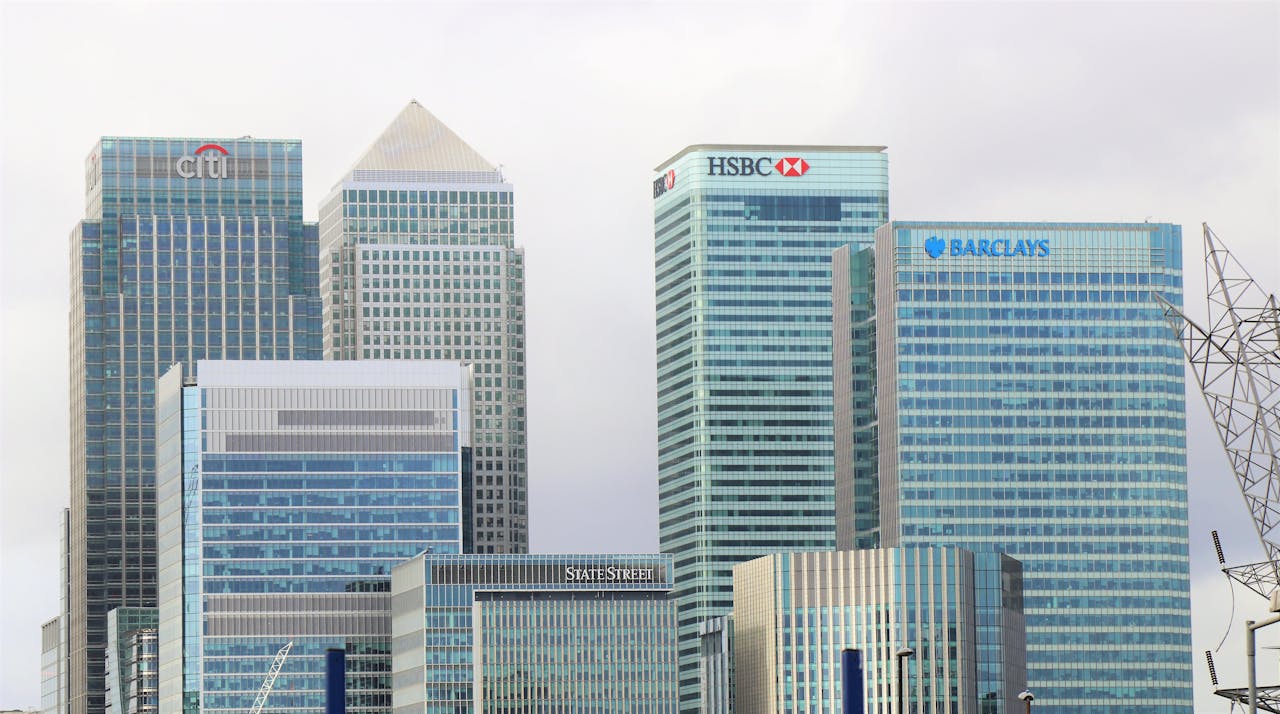
Banks make money in two ways: interest income from investments (including mortgages and other loans) and income from non-interest business (and sometimes a little trading income). (Pexels Photo)
The Liberal Democrats were the first party to unveil their manifesto and the first party to break ranks and declare increases in tax, or sort of. Ed Davey announced that they would reverse tax cuts to banks and introduce a windfall tax on profits. Obviously, the Liberal Democrats can do this as they have little chance of gaining a majority. But does it make sense?
As we have seen with recent inflation, the Pavlovian response of western governments and central banks is to increase interest rates to encourage saving and reduce spending.
This relies on the population being in debt: increase rates and reduce disposable income as people need to service their debts. This reduces spending and encourages saving.
The average debt including mortgages per household in the UK is £64,296. Collectively, people in the UK owe nearly £2,000 billion. Interest rate hikes hurt the population as they lead to much higher mortgage costs.
In the current climate, we have inflation caused by increased supply costs, that is, prices being pushed up by constraints as a result of the war in Ukraine (fuel price spike) and Brexit (shortages in labour pushing up wages).
According to the Office for National Statistics average weekly earnings for employees in Britain grew by 6% excluding bonuses and 5.9% including bonuses in the first quarter of 2024 compared to the previous year.
This growth reflects a continued trend of rising wages across various sectors which fuels inflation. The Lib Dems clearly see political mileage in attacking the banks and, depending on the level of the tax raid on them, it could be both a vote winner and help provide the necessary funding for the NHS and public services. But does Davey’s proposal go far enough?
The two major parties continue to tell the population they can tackle major concerns with NHS funding (the Nuffield Trust reported last year that there could be a £2bn black hole in the NHS’s finances and the reported deficit in public finances of up to £12bn), without increasing tax. Allegedly, this is going to be achieved by increases in economic growth, but it seems unlikely given the modest forecasts of less than 1% a year, and the promise to service and reduce national debt.
Increasing interest rates is a policy heavily embedded in political ideology. Banks make money in two ways: interest income from investments (including mortgages and other loans) and income from non-interest business (and sometimes a little trading income).
Increasing interest rates will also automatically boost bank profits and have the knock-on effect of increasing shareholder returns, either via dividends or share price increases. There will also be an increase in tax returns from these banks, but the Liberal Democrats clearly don’t think this would be big enough.
This may be because profits at the major UK banks since interest rates have started to rise have been quite startling. Barclays, NatWest and Lloyds are three of the largest banks in the UK. If we aggregate their earnings before tax in 2020, before interest rates began to increase, and compare it with 2024, after interest rate increases started to take hold, it shows that they shared a combined increase in earnings of nearly £18bn. Even taking account of COVID this is a startling increase.
Increased taxes
Raising taxes as a method for managing economic stability, rooted in the principles of functional finance – where the Government intervenes in the economy to reduce instability – offers a compelling alternative to increasing interest rates.
This never plays well in the popular media, perhaps due to its heyday in the 1970s. But you could start reducing interest rates back down 1%, lowering household debt repayments and stimulating investment, while countering inflationary pressure by not only raiding bank profits over the last four years, but also slowly increasing income tax.
Work by HM Revenue and Customs shows that every 1% change in the basic rate of tax brings in more than £7bn to the government, while increasing higher rate tax by 1% yields £1.75bn. By increasing taxes and reducing interest rates to 1%, instead of boosting bank profits that are unlikely to be reinvested in UK plc, the tax revenue will boost government funds that can be used for the NHS, education, infrastructure and public sector debt.
With the right policy mix, economic growth and investment can be stimulated while maintaining fiscal discipline and controlling inflation. The exact outcomes depend on the responsiveness of consumers and businesses to these changes, as well as the overall economic environment and global conditions.
The Lib Dems may be on to something, and it is encouraging to see at least one party in this election campaign challenge conventional economic wisdom on government spending, deficits and the role of fiscal policy in managing the economy. This approach might revolutionise economic management, unlocking a path to a fairer and more prosperous future.![]()
Robert Webb, Professor of Banking & Applied Economics, University of Stirling and Duncan Watson, Professor of Applied Economics, University of East Anglia
This article is republished from The Conversation under a Creative Commons license. Read the original article.





















